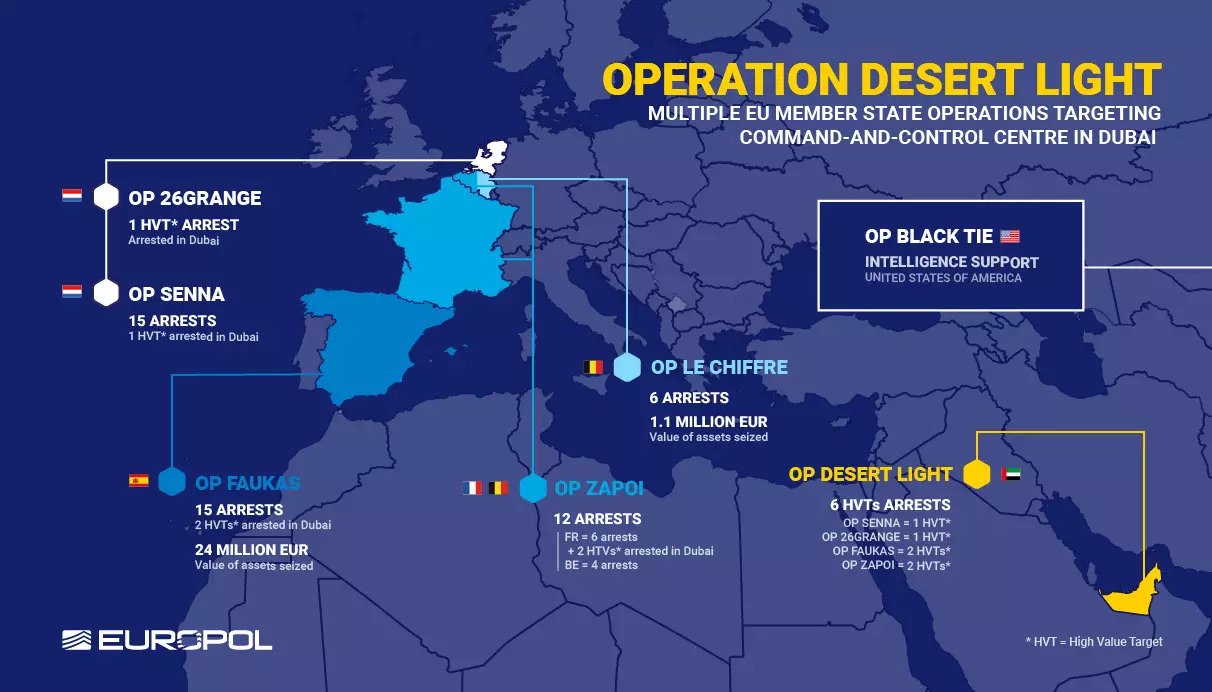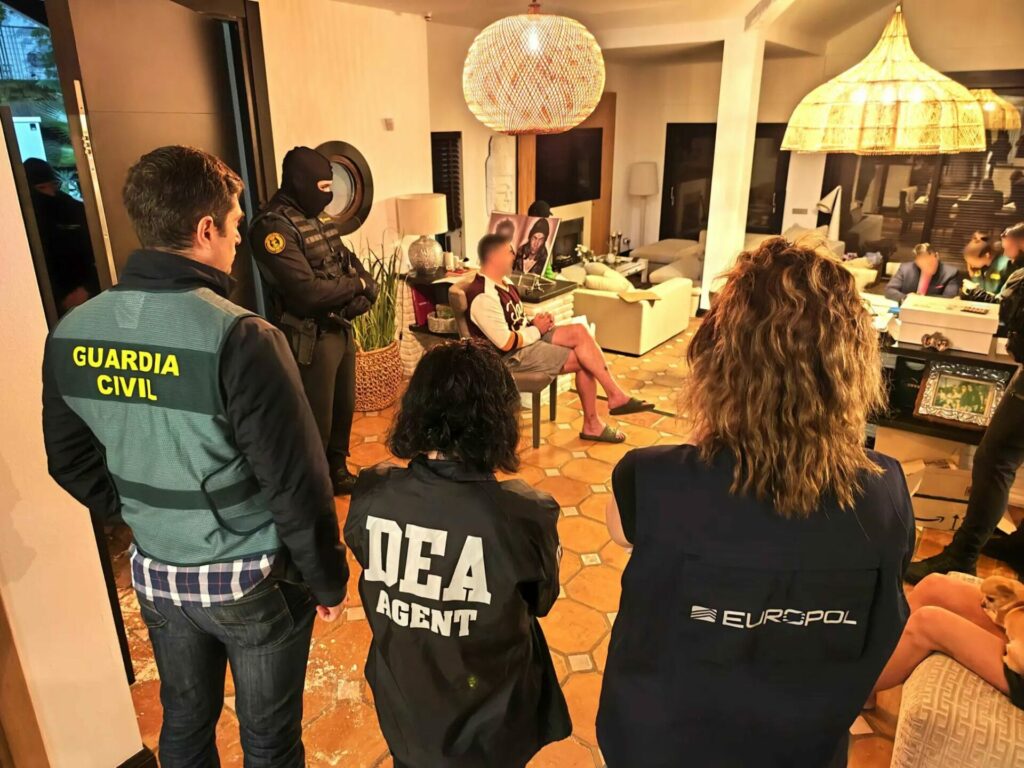Europol and authorities in the United Arab Emirates carried out a series of searches in Dubai on 8-19 November in relation to European drug trafficking, Europol announced in a statement on Monday. The raids were the conclusion of a two-year-long investigation and have led to 49 arrests and the seizure of more than 30 tonnes of drugs.
The drug cartel represents a third of cocaine imports into Europe. Recent searches were focused on disrupting the organisation’s command and control centre for its logistics infrastructure.
The Europol operation, codenamed Operation Desert Light, took part in parallel with investigations launched by Belgian, French, Spanish, Dutch, and Emirati police forces. Photos from the raids in the UAE show US Drug Enforcement Agency (DEA), Spanish Guardia Civil officers, and Europol officials.
Belgium’s operation, codenamed Le Chiffre, has led to six high-profile arrests and 1.1 million in seized assets. A separate operation, Zapoi, led to the arrest of a further four people in Belgium and two in Dubai. Suspects were detained in Antwerp and Brussels.

Credit: Europol
Dutch prosecutors say that the Europol operation detained one Dutch-Moroccan national suspected of bringing thousands of kilos of cocaine into the Netherlands in 2020-2021. The criminals also received charges relating to money laundering, corruption, firearms possession, and belonging to a criminal organisation.
A Dutch-Bosnian was arrested on similar charges. Both were arrested in Dubai and will be extradited.
Living beyond the law?
Dubai has previously been accused of serving as a safe haven for criminals. In May, a report by the Organised Crime and Corruption Reporting Project (OCCRP) revealed that dozens of high-profile criminal suspects, including many from Belgium, were living a life of luxury away in Dubai beyond the reach of prosecution. The report also concluded that the city was a huge “black hole in international anti-money laundering efforts.”
Europol says that this recent operation shows that Europe and the Arab nation were working closely together, following a September decision to establish liaison officers between the UAE and Europol.
Related News
- Forty-four people from EU's 'most dangerous' criminal organisation arrested
- Federal judicial police nab leaders of drug trafficking organisations
“This coordinated clampdown sends a strong message to criminals seeking sanctuary from law enforcement,” Europol said.
Belgium has long served as a logistical hub for the European cocaine trade. This year, an estimated 200 tonnes of cocaine destined for overseas export were seized in Latin American ports, 65 tonnes of which were destined for the port of Antwerp. The port seizes so much cocaine that incinerators can no longer keep up with the demand.

